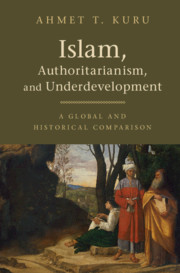5 - Crisis
The Invasions (Twelfth to Fourteenth Centuries)
from Part II - History
Published online by Cambridge University Press: 18 June 2019
Summary
Between the twelfth and fourteenth centuries, Muslims experienced multiple crises. The Crusaders and the Mongols destroyed the urban infrastructure and the public order across a vast Muslim geography. On the one hand, the fall of most Muslim states, except the Ayyubids and then Mamluks in Egypt, and Berber dynasties in Morocco/Andalus, weakened the ulema–state alliance. On the other hand, the perils of the Crusades and the Mongol invasions led many Muslims to seek safety from the ulema–state alliance. In general, both the Crusader and the Mongol invasions led to a deterioration of mercantile and scholarly activities in many Muslim cities. Muslim countries still produced such remarkable scholars as Ibn Rushd and Ibn Khaldun. Another scholar, Ibn Taymiyya, wrote on the theory of the ulema–state alliance. Meanwhile Western Europe was protected from destructive invasions after the halt of the Mongol invasion in Eastern Europe. In this context, Western Europe witnessed socioeconomic and political transformations. This chapter first analyzes the Muslim world and then explores these Western European transformations.
- Type
- Chapter
- Information
- Islam, Authoritarianism, and UnderdevelopmentA Global and Historical Comparison, pp. 118 - 163Publisher: Cambridge University PressPrint publication year: 2019

